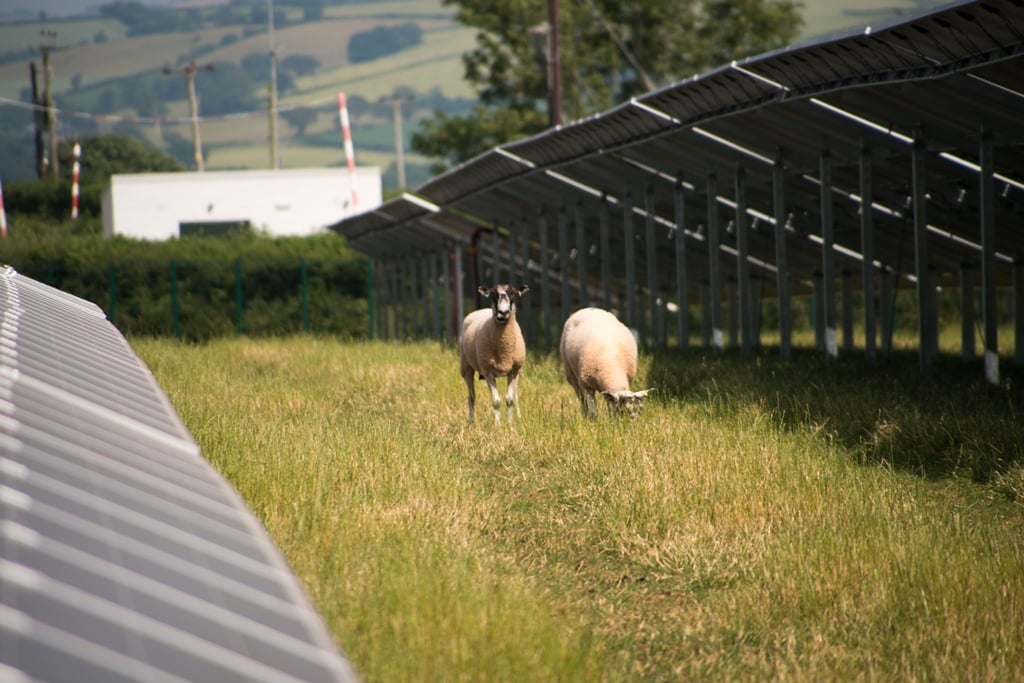
A ministerial statement will be laid before Parliament today (15 May) urging councils not to approve planning permission for solar farms on high-quality farmland. The written statement is part of Rishi Sunak’s drive to protect food security.
It clarifies that such solar projects should only be given the go-ahead if ‘absolutely necessary’.
As reported by the Telegraph, Energy Security Secretary Clair Coutinho said: “As the Prime Minister set out this week, rising threats around the world mean we must have a renewed emphasis on our security.
“I want to see more solar on rooftops and, where that’s not possible, for agricultural land to be protected and for the cumulative impact on local villages to be considered where they are facing a high number of solar farm applications.
“We will make sure we reach our solar targets in a sensible way, that delivers clean, cheaper energy but does not compromise our food security.”
Councils will be told to consider other local solar farms when considering new applications, focusing on the ‘cumulative’ impact. Some residents of rural England have registered disgruntlement about the conversion of agricultural land into solar farms.
Criticisms tend to focus on the visual impact of a solar farm or the potential for the UK to lose the ability to grow its own food. Still, both the Conservative and Labour parties support the net zero by 2050 target; achieving it will require expansion in the clean energy sectors.
Separate from the solar argument, farmers will be allowed to build wind turbines without planning permission under government plans to boost agriculture.
There have been calls for permission to be extended to turbines as high as 30m, still well below the 120-150m of the largest onshore wind farms.
This intervention builds on a National Policy Statement issued earlier this year, making it harder to build on the highest quality land (with a grade of 1 to 3a). The ministerial statement intends to provide more explicit guidance for developers and those making planning decisions.
The industry responds
Solar Energy UK has ‘welcomed’ today’s parliamentary statements, taking them as confirmation that existing land use policies will continue to provide stability as the sector expands.
The trade association further stated: “Both Coutinho and the Prime Minister’s broader comments on food security appear to be directed at a small minority of anti-solar Conservative backbenchers, rather than decision-makers in local councils.
“The solar industry will continue to follow established principles and looks forward to the publication of the government-industry Solar Roadmap, which will light the way towards adding more than 50GW of solar capacity over the next decade.”
Chief executive of Solar Energy UK, Chris Hewett, added: “According to Defra, the main threat to food security is climate change, which is what solar farms are there to fight. Furthermore, without solar farms, hundreds of traditional farming businesses would have gone to the wall, unable to produce food without the security of a reliable income.”
The Solar Roadmap is expected to be published in the coming weeks.
The Association for Renewable Energy and Clean Technology (REA) also replied to the Written Ministerial Statement, emphasising that planning guidance already ensures the highest quality agricultural land is not built on and takes into account cumulative development concerns, and that the solar industry works closely with the agricultural sector.
Indeed, REA writes that solar energy would “only take up a tiny fraction of all the UK’s agricultural land”. As of 2022, it occupied less than that taken up by the UK’s gold courses. The bigger threat to UK food security is climate change.
Dr Nina Skorupska CBE, CEO of the REA, said: “Restricting further solar development would pose a serious threat to the jobs and investment created by the solar industry and the large solar farm sector that is being built now largely without public billpayers’ support.
“It would undermine the government’s ability to meet a net zero power system by 2035 and keep us locked in to expensive fossil fuels at a huge cost to households and businesses.
“Therefore, we call on government to publish their Solar Roadmap following the work of the solar taskforce as soon as possible, to outline how else we can meet their stretching but essential 70GW solar PV deployment target.”

